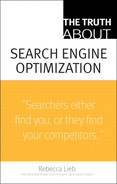In search engine optimization, the goal is to be the number-one result in organic rankings for a given search term. Right? Or is it? In SEO terms, what exactly does number one mean, anyway?
One recent hot movie is the latest installment in the “Indiana Jones” series. Conduct a search for the term “Indiana Jones,” and your mileage will vary depending on when and where you are when you do that search. Is the film in current release? In that case, Google will likely shoot you a link to the movie’s trailer and current showtimes in your area. It might give you a box to fill in with your city, state, or zip code to find local theaters. Or if you’re signed into your Google account and Google “knows” you’re the one who’s searching, it might just shoot you the list of showtimes directly.
Are you searching on opening weekend? You might get links to recent reviews on the top of the page, under the heading of “news”. You might see a big image of the movie’s poster or a still from the film, either in the form of an image file or a clickable YouTube video or the trailer or other material. Google’s favoring Wikipedia entries in organic results, so it’s likely that the entry for “Indiana Jones” will be high in those organic results.
That same search on Yahoo! displays an organic results page on which the top third of valuable, number-one real estate is occupied with an image linking to the trailer, showtimes, and reviews of the film.
On both Google and Yahoo!, this very relevant site ranks highly, arguably even in the number-one slot. But can it really be argued that it actually ranks as the top organic search result if it’s pushed well below the top of the page (where searchers are most likely to see it) by all that other stuff Google and Yahoo! think a searcher looking for “Indiana Jones” might want most to see?
All kinds of things are messing with the concept of being ranked number one, and a rapidly changing and evolving search landscape is going to make the idea of number one murkier, not clearer, in the future.
Search results used to be a list of web pages. Universal search now delivers all kinds of results to searchers, culled from the wide variety of vertical content indexed by search engines. Search for a “toaster,” for example, and you’re likely to see shopping results at the top of the page. Search “global warming,” and news stories will probably show up on top of any relevant website dedicated to the topic. Depending on the search, you could get local results, images, video, books, or blog entries on the top quarter or third of the pages, each pushing the “number-one” result further and further down—perhaps to what was once the slot reserved for result #3, #4, or even #5.
The major search engines also develop special results for major events, such as the 2008 Olympics in Beijing. Olympics-related searches display a host of specialized, above-the-fold results.
If universal search doesn’t do enough tinkering with “number one,” expect to see more havoc wreaked as search gets more personal.
Personalized search features in all the major search engines bring plenty to bear on the elusive number-one results slot. Some elements of personalization are automatic. A searcher in the UK will get primarily English language results, as will a searcher in the United States. But the IP address from which a search is conducted will shunt that search to the U.S. or British version of Yahoo!, Google, or MSN. This can blow a number-one result in one country out of the water (or clear out of the search results, not to mention the number-one slot) for an identical search conducted from either side of the pond.
Searchers are invited to apply filters and preferences to their queries. A searcher may elect, for example, to search within language parameters, or to screen results for adult content. A top news search result might not appear at all in a general web search query.
Then, as alluded to previously, there’s the personalized information search engines are able to deliver to users who are signed in to their services, either through an e-mail account (Yahoo! Mail, Gmail, or MSN Mail/Hotmail), or a portal account (My Yahoo!, My Google, and so on). So, Yahoo! may “know” that when you look for queries related to “mouse,” you mean rodent, whereas my search history indicates I’m more inclined to seek computer peripheral-related results. With a search appliance installed on a user’s computer, such as Google Desktop, personal files related to a query may display over search results.
All these factors, and more, influence what appears on an organic results page, not to mention what shows up in that coveted and ever more elusive number-one slot. As search evolves into ever-higher levels of technical sophistication, number one will become an even more slippery topic.
Good SEOs are aware of these variables, and aware that much of what determines number one resides well outside their control. Number one is never a realistic search optimization goal because rankings can, do, and will always change. That’s why SEO is an ongoing process that aims to position a site or page high in organic search results for relevant searches over a long period of time.
What, after all, is the point in being number one for a day? Or an hour? How high? For how long? SEO is a hugely influencing factor. But ultimately, number one is determined by ever-changing and mutable search engine algorithms.
